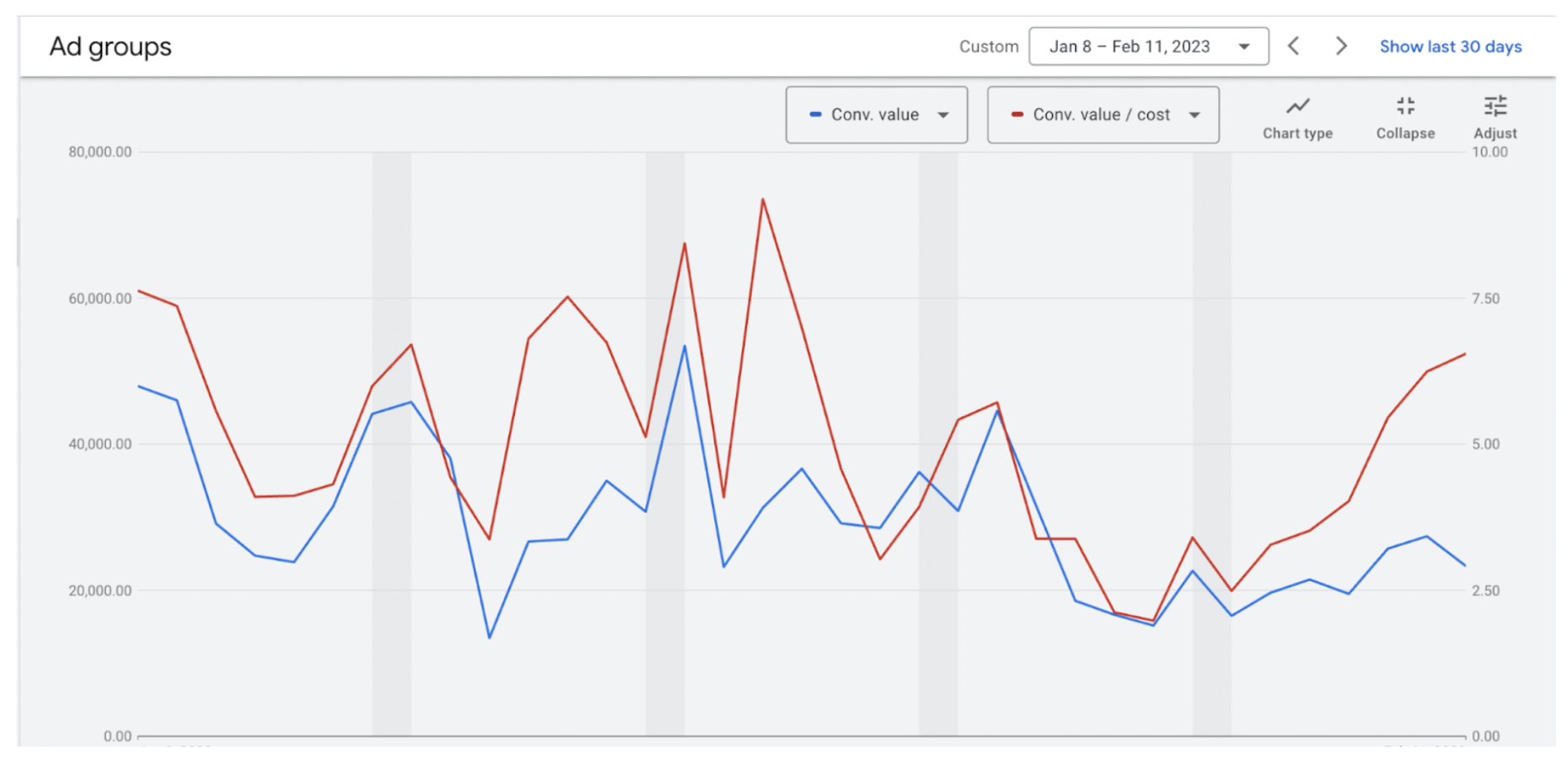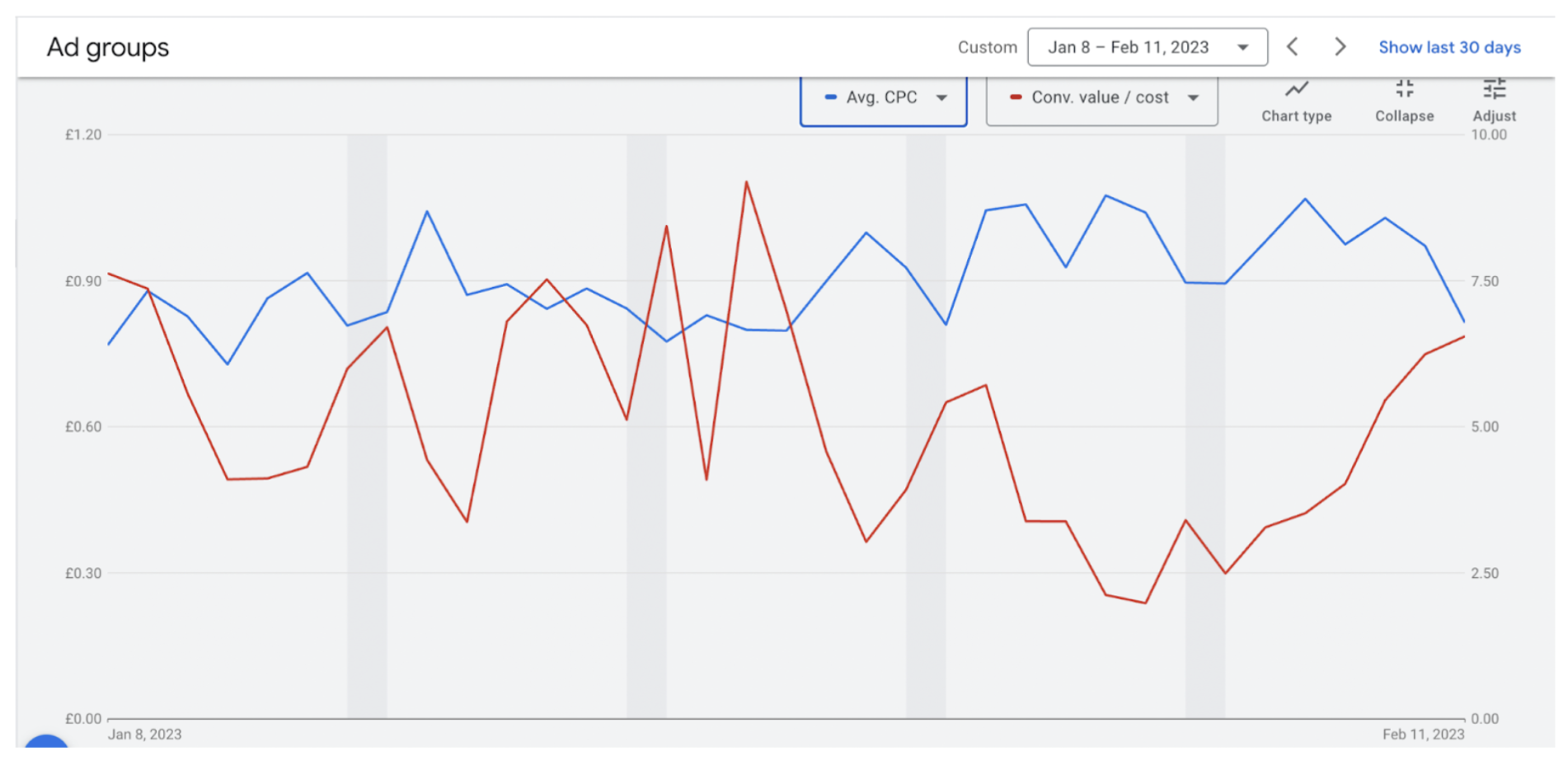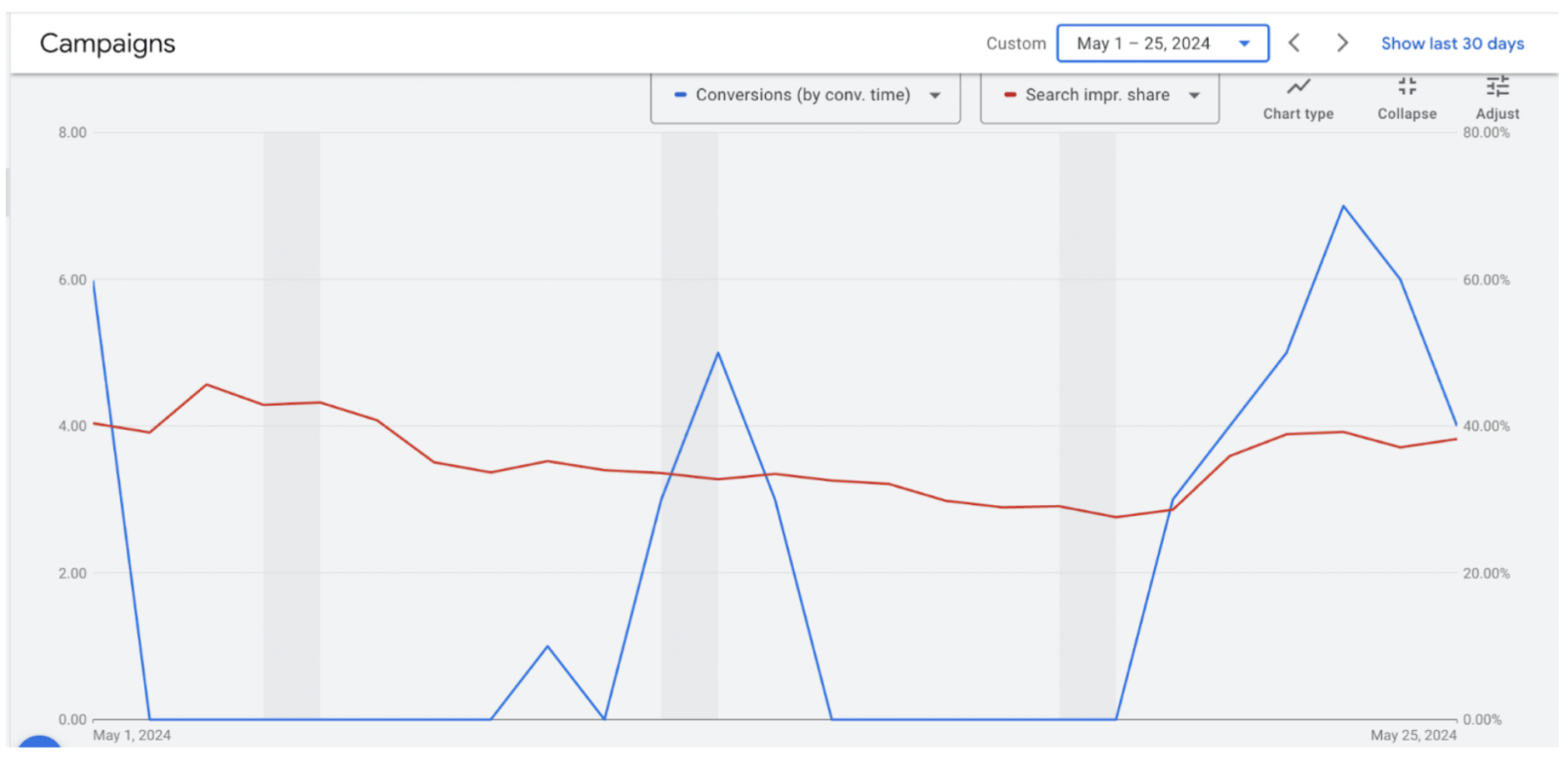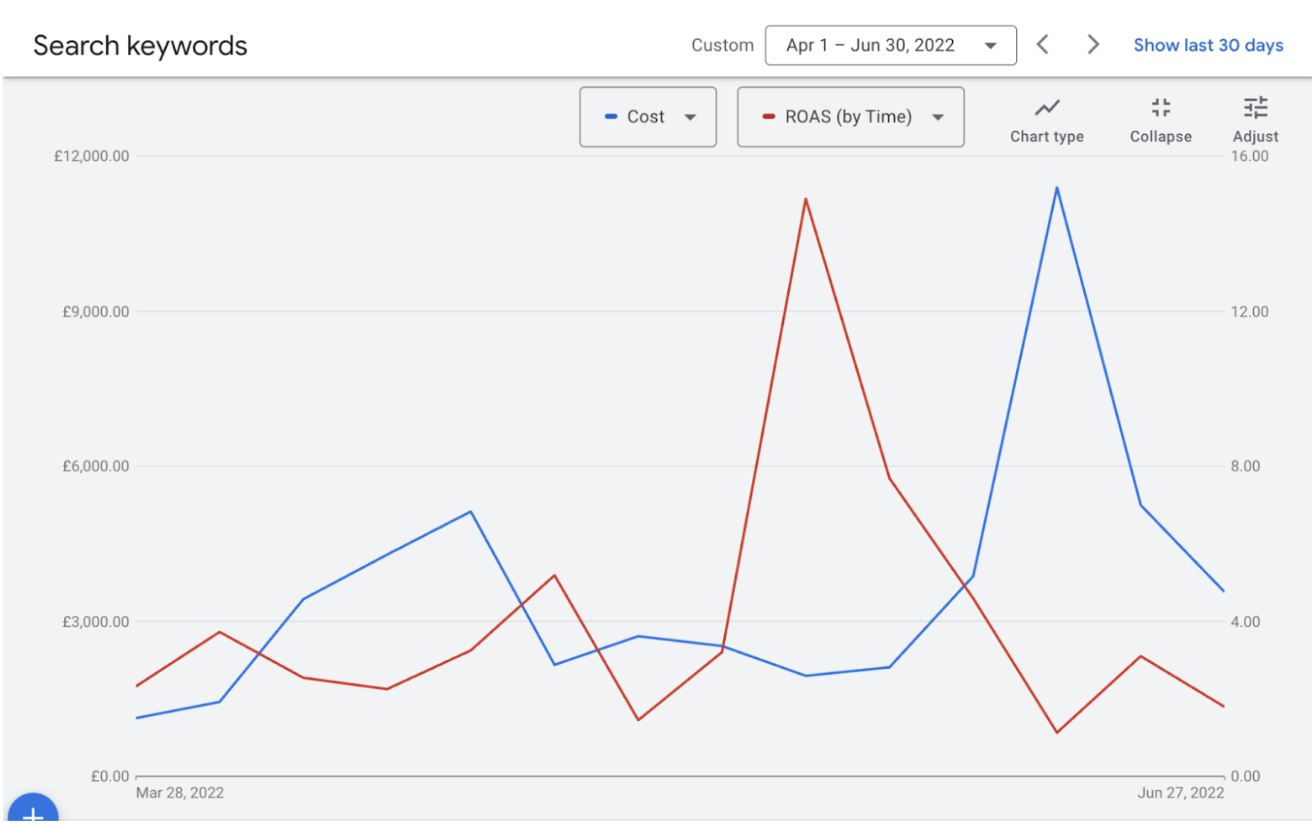Unusual Cases for Advanced Controls [+Real Life Examples]

![Unusual Cases for Advanced Controls [+Real Life Examples]](https://cdn.prod.website-files.com/683e7a23dac79298f51ea01a/685b8fc014d765d4233eff5f_685b7bc771b105f77c424f01_Blog%20Covers%20(2).png)
Unusual Cases for Advanced Controls [+Real Life Examples] - Seasonal Adjustments & Data Exclusions in Google Ads
Introduction
Ever notice something or know something that Google ads might not? Smart Bidding usually does a better job than humans would but there are cases where it needs a bit of extra information.
In this post, we’re diving into how seasonal adjustments and data exclusions in Google Ads can give you that added control when you don’t have time to wait for your algorithm to adjust
Let’s start with a positive, and slowly get into more advanced controls..
Seasonal Adjustments
1. Unpredictable Viral Trends (Positive Seasonal Adjustment)
Explanation: Occasionally, products or services can go viral due to unforeseen reasons like a social media trend or a celebrity mentioning them.
Examples:
- Example 1: Tapatío Hot Sauce – The brand experienced a sudden surge in online searches and sales after being featured in a viral TikTok recipe video. The unexpected popularity led to a massive spike in demand.
Tips: First understand that Google will pick up on this trend too (it’s in their interest to get you more clicks). That being said, you may have given the campaign performance restrictions (Hit a Set Target ROAS) and because it hasn’t seen this spike before it might be more cautious than you’d like it to be. Your positive (seasonal) adjustment is like words of encouragement from a parent
2. Local Events (Negative Seasonal Adjustment)
Explanation: Local, weather or political events can influence consumer spending patterns in unpredictable ways.
Examples:
- Example (UK): The Queen’s Funeral
- Your Country is In A Massive Sporting Event (World Cup Final)
Tips: Stay informed about local indicators that can affect conversion rates over short periods.
3. End of a Sale (Negative Seasonal Adjustment)
Explanation: When a major sale or promotion ends, the sudden drop in activity can impact your ad performance.
Examples:
- Best Buy – After their sale ends, Best Buy may see a dramatic decrease in clicks but more importantly conversion rate. Post-sale, they’ll need to adjust their ad budget and bids to align with the new, lower demand. That being said, we know Google’s bidding strategies work off 30-day ROAS/CPA averages so given the time frame is so long it won’t react as quickly as you wish.
Tips: You can imagine it was the difference between changing direction for two boats (Jetski & Ferry).
- Ferry (Smart Bidding Strategy) great for long distances but doesn’t turning quickly
- Jetski (Seasonal Adjustment) not great for long distances but very nimble


Data Exclusions
1. Conversion Tracking Breaks
Explanation: The Bidding Strategies is constantly learning from your conversion data. If the data is incorrect the campaigns will be misled.
Examples:
- The screenshot below shows you the relationship between conversion data and now competitive you are. Uf Less data will give campaigns less
Tips: Have script in place to alert you if Conversion’s Drop below average thresholds

2. After an Abnormally Successful Day (Data Exclusion)
Explanation: Wait, What? You experience an unusually successful day due to a large, one-off order. “What should you do? Applied a Negative Adjustment?” (Hear me out) First, ensure the success isn’t due to fraudulent activity before you pop out the champagne to celebrate.
Example: Fraudulent Order– This campaign’s daily revenue is typically between 2,000 and 10,000/day. And all of a sudden, you have a 500,000/day. Seems fishy, check with the internal team to verify it’s validity - sadly no champagne tonight.

Example: Successful Day - You had one massive order, which blew up stats out of the park. You checked it ain’t fraud (The champagne’s on ice). Weeks go by, you're still skipping around the office like you are James Brown until one day the algorithm goes crazy and the campaign’s spend all your gains, in poor performance in one day.
The penny drops:
- Google is a for profit multi-national looking to maximise shareholder value.
- In fairness to the campaign, it’s goal is to maxmise your conversion value at your desired Target ROAS.
- The Target ROAS works off a 30 Day Average.
- In fairness, it did do it’s job but looking at the graph - you do feel a little robbed

How to avoid this in the future:
- Don’t let the campaigns learn from this - add a data exclusion and hold off the champagne until you do.
Conclusion
Adjusting your Google Ads strategy for these unusual scenarios can help you stay competitive and optimize your campaigns more effectively.
Be prepared to adapt to unexpected changes and share your own experiences with unusual cases in the comments below.
Have you encountered any surprising situations that affected your Google Ads performance? Let us know how you handled them!


Open Shopify. Smile.
The Google Ads Partner to meet your store’s needs.
